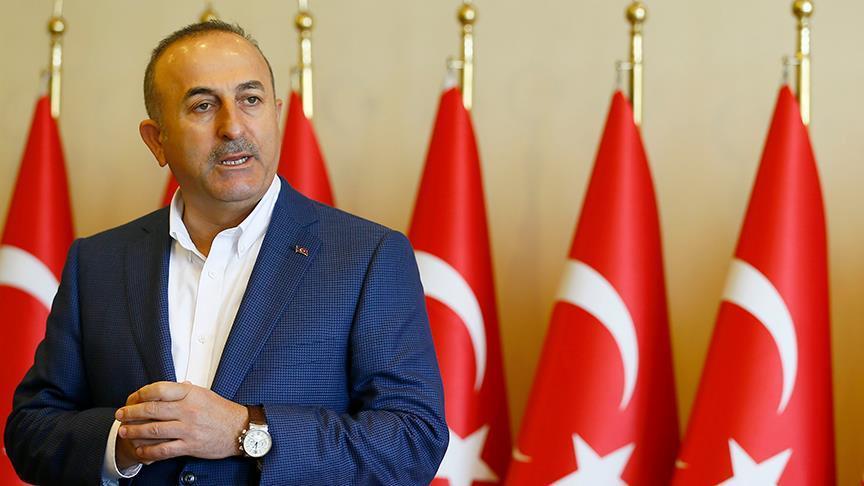
ANKARA
Turkish foreign minister believes a negotiated solution to the Cyprus issue is possible based on the compromise of both sides, saying the Turkish Cypriots showed their willingness for reconciliation, “now the ball is in the Greek Cypriot side’s court."
"The main reason for not finding a solution to Cyprus issue is the lack of political will on the Greek Cypriot side,” Mevlut Cavusoglu told the Greek daily Phileleftheros on Sunday, referring to the solution initiatives refused by the Greek Cypriot side.
“The Macmillan Plan in 1958, Acheson Plan in 1964, two-party regulation in 1975, Perez de Cuellar indicators in 1983, Boutros-Ghali's initiative in 1992, Annan Plan in 2004 were just a few of them."
"As a result, it has been the Greek Cypriots, not the Turkish Cypriots or Turkey, who have rejected countless UN-mandated attempts for decades, including the Annan Plan. What prevents the Greek Cypriots from seeing the Turkish Cypriots as equal political partners? Isn’t it important to reach an applicable and sustainable solution?” Cavusoglu said.
“We, as Turkey, will certainly continue to give full support to the solution process."
Cavusoglu accused the Greek Cypriot side of “constantly misinterpreting the situation”.
“A negotiated solution will be based on the compromise of both sides. The Turkish Cypriots [already] showed their willingness towards reconciliation. Now the ball is definitely in the Greek Cypriot side’s court."
Asked about Turkey’s military presence on the island as a guarantor country, Cavusoglu said there was a reason for keeping Turkish forces on the island, “otherwise, there might be many problems in the long run”.
“In 1963-1974, Greek Cypriots [caused] the 1960 Partnership State to collapse, initiated ethnic cleansing activities against the Turkish Cypriots and tried to enforce Enosis,” Cavusoglu said stressing that the bloodshed on the island came to an end after Turkish intervention.
“The development that brought democracy back to Greek Cypriot [side] was also Turkey's intervention.”
Cyprus was divided into a Turkish Cypriot state in the north and a Greek Cypriot administration in the south after an Enosis (Union)-inspired 1974 military coup was followed by violence against the island’s Turkish people, and Turkey’s intervention as a guarantor power.
The reunification talks -- brokered by UN Special Cyprus Envoy Espen Barth Eide -- were launched in May 2015 to discuss a permanent settlement for the divided Mediterranean island.
The status of the island remains unresolved in spite of a series of discussions that resumed in May 2015.
Despite the disputed status, the Greek Cypriot administration continued to unilaterally open new tenders for hydrocarbon explorations without any collaboration with Turkish Cypriots.
*Reporting by Nazli Yuzbasioglu; Writing by Sibel Ugurlu
Anadolu Agency website contains only a portion of the news stories offered to subscribers in the AA News Broadcasting System (HAS), and in summarized form. Please contact us for subscription options.



